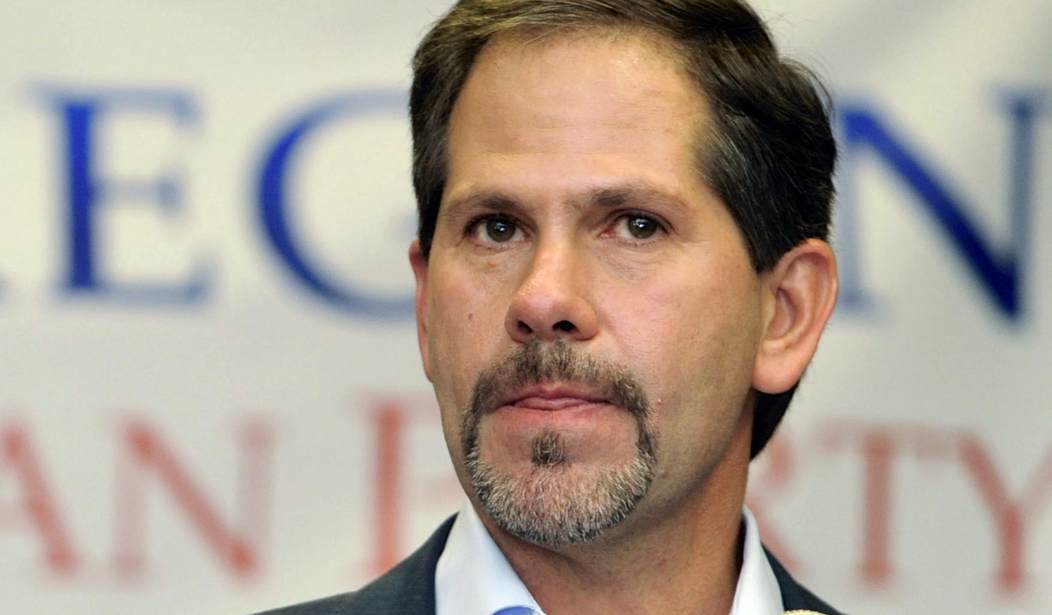He’s not a hard-line conservative by any stretch. He self-identifies as moderate on many issues. He doesn’t draw political capital from the power of President Trump, like entrepreneur Sam Carpenter, the man he beat in Oregon’s primary election for the Republican gubernatorial candidacy.
But Dr. Knute Buehler will need the support of every Republican in the state, whatever the degree or stripe of their conservatism, if he hopes to become Oregon’s first Republican governor since 1987. The Bend, Oregon, state representative will also need the help of independents fed up with one-party rule, and open-minded Democrats who understand that under the current policies of the Blue Party, Oregon is headed for financial Armageddon.
Buehler is cautious whenever the name of our current president comes up. In interviews, he redirects, zeroing in on state issues and what he’ll do to address them, depriving left-leaning journalists of the dissension they’re looking to foment between state Republicans and their candidate. It’s smart, because the fact of the matter is that it is unlikely that an ardent Trump supporter could win a statewide office in Oregon.
Ironically, it will take exactly the same kind of coalition that vaulted Trump to the Oval Office to secure for Buehler the governorship of the Beaver State.
His opponent, Governor Kate Brown, was installed after ethically-challenged John Kitzhaber resigned only weeks after his election to a fourth term in 2014. Brown won a mandated special election in 2016, and in November 2017 announced she would run for a third term, and her first full term as governor.
Brown’s progressive legacy is set in stone. By awarding her another four years, Oregonians will enable more wasteful spending, more taxation, and more counterintuitive liberal policy-making. Brown has already annexed Trump’s tax cuts with a confiscatory grab facilitated by untrammeled Democrat control of the statehouse in Salem. In an effort to mute criticisms of the reversal, she called a special session and threw some crumbs back to Oregon small businesses
But the largest disaster Brown has failed to address is the Titanic proportions of the state’s Public Employees Retirement System (PERS). That’s not a surprise. An unbeaten gallery of Democrat governors has made the state’s unsustainable retirement entitlements the hill which they defend at all costs, and which Republicans who vow to reform the system die on.
By simply addressing the need to recalibrate the monumental obligations of PERS, which starve other state programs of much-needed funds, Republican candidates, Mr. Buehler included, set upon their heels the public employee unions, who spend millions defending the onerous stipulates of the system, citing court battles won to protect them and demonizing any candidate who dares question how PERS spending factors in the overall financial health of the state.
Buehler is on board with PERS reform but has experienced loggerhead episodes with some of the more rock-ribbed elements of Oregon social conservatism. He has dismayed some right-to-life advocates with less-than-unequivocal support, and turned off some Second Amendment defenders with his Yes vote on Brown’s “boyfriend loophole” bill (enacted), which bans those convicted of domestic violence and stalking from owning guns regardless of their marital status with the victim.
Overall, however, Buehler, an orthopedic surgeon and former Rhodes Scholar, rates well with gun rights advocates. He voted against a bill that would authorize courts to prohibit gun ownership for suicidal individuals and another that would extend the background check period for gun purchases.
Understandably for a father and medical professional, Buehler has made proposals on education and healthcare key elements of his campaign.
Despite understandable reticence to put too fine a point on it in Kate Brown’s sanctuary state, Buehler more closely aligns with the conservative Republican party line on immigration. He supports a sympathetic resolution for DACA recipients but voted against a controversial measure (passed) that prohibits state agencies from disclosing an individual’s immigration status. He supports President Trump’s border wall and the deportation of criminal illegal aliens.
Can he win?
Outside of Portland and the deep blue Interstate-5 corridor (Portland/Salem/Eugene specifically), Oregon is a red state. The color-coded map hereabouts looks very much like the same map of the United States — blue urban population centers surrounded by a sea of red. Buehler will surely lock up pluralities in the conservative/libertarian hinterlands, but he needs to attract votes from the blue bastions to turn the tide.
Conservative analysts are cautiously citing prospects for him to do exactly that—perhaps the best chance since 2010, when former Portland Trail Blazer Chris Dudley nearly toppled Kitzhaber, 49 percent to 48 percent.
Statewide Oregon elections almost always play out the way elections would likely play out if the Electoral College was abolished and results were determined based on the popular vote. Progressive population centers would achieve victory in virtually every national election, disenfranchising millions of voters in more ideologically traditional and conservative parts of the country.
In sades of that nightmare scenario, Oregon Republicans haven’t fielded a winning candidate for governor since Vic Atiyeh beat Democrat Robert Straub in 1978.
Dr. Buehler may be just the candidate to break through. He knows what it’s going to take to flip the governorship. He’s mounting a smart campaign but will need all the help he can get.









Join the conversation as a VIP Member